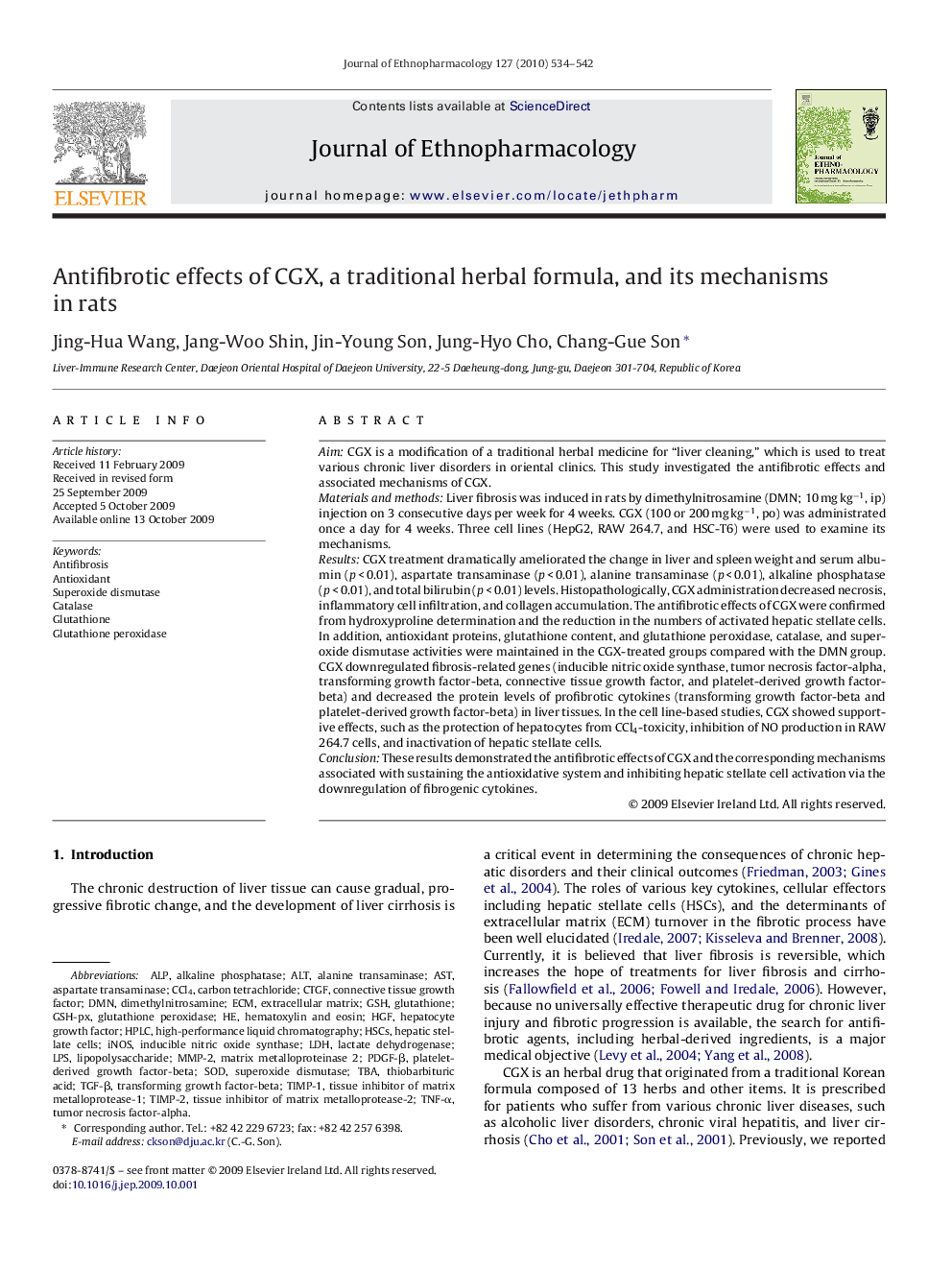| Article ID | Journal | Published Year | Pages | File Type |
|---|---|---|---|---|
| 2545927 | Journal of Ethnopharmacology | 2010 | 9 Pages |
AimCGX is a modification of a traditional herbal medicine for “liver cleaning,” which is used to treat various chronic liver disorders in oriental clinics. This study investigated the antifibrotic effects and associated mechanisms of CGX.Materials and methodsLiver fibrosis was induced in rats by dimethylnitrosamine (DMN; 10 mg kg−1, ip) injection on 3 consecutive days per week for 4 weeks. CGX (100 or 200 mg kg−1, po) was administrated once a day for 4 weeks. Three cell lines (HepG2, RAW 264.7, and HSC-T6) were used to examine its mechanisms.ResultsCGX treatment dramatically ameliorated the change in liver and spleen weight and serum albumin (p < 0.01), aspartate transaminase (p < 0.01), alanine transaminase (p < 0.01), alkaline phosphatase (p < 0.01), and total bilirubin (p < 0.01) levels. Histopathologically, CGX administration decreased necrosis, inflammatory cell infiltration, and collagen accumulation. The antifibrotic effects of CGX were confirmed from hydroxyproline determination and the reduction in the numbers of activated hepatic stellate cells. In addition, antioxidant proteins, glutathione content, and glutathione peroxidase, catalase, and superoxide dismutase activities were maintained in the CGX-treated groups compared with the DMN group. CGX downregulated fibrosis-related genes (inducible nitric oxide synthase, tumor necrosis factor-alpha, transforming growth factor-beta, connective tissue growth factor, and platelet-derived growth factor-beta) and decreased the protein levels of profibrotic cytokines (transforming growth factor-beta and platelet-derived growth factor-beta) in liver tissues. In the cell line-based studies, CGX showed supportive effects, such as the protection of hepatocytes from CCl4-toxicity, inhibition of NO production in RAW 264.7 cells, and inactivation of hepatic stellate cells.ConclusionThese results demonstrated the antifibrotic effects of CGX and the corresponding mechanisms associated with sustaining the antioxidative system and inhibiting hepatic stellate cell activation via the downregulation of fibrogenic cytokines.
